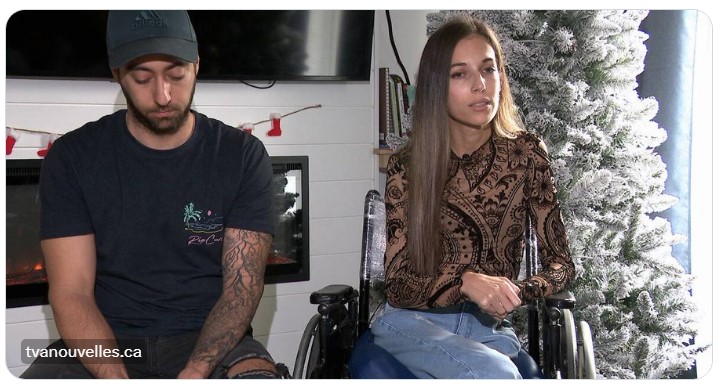In our communication this week, we will review the latest meeting (November 28) of the Federal Joint Committee on Medical assistance in Dying (MAiD), which ended with an inconceivable development: the already submitted testimonies to the committee would not be transmitted to its members due to the impossibility of translating all of them within the given deadlines!
The information has not yet been covered in the media, and we are still awaiting an official response from the clerks of the MAiD committee.
We will work diligently with our allies to ensure that the results of our work (and yours) can be examined as evidence that Canada has not at all reached the level of readiness necessary for the safe and proper application of MAiD (in cases where mental disorder is the sole medical condition cited).
Thank you for your support,
Jasmin Lemieux-Lefebvre
Coordinator
Living with Dignity citizen network
Echoes from the last AMAD committee meeting
The last AMAD committee meeting allowed Professor Archibald Kaiser, Dr. Tarek Rajj (from the Centre for Addiction and Mental Health), and Dr. Sonu Gaind to emphazise an obvious point: Canada is not ready for medical assistance in dying in cases where mental disorder is the sole medical condition cited, scheduled for March 17, 2024.
Here is an excellent five-minute exchange between MP Luc Thériault and Dr. Gaind (also available in a shortened version on our X account) that demonstrates this well, via our Facebook page.
This exchange is also at 19:56:36 in the link to view the entire meeting.
The College of Physicians of Quebec also spoke during the meeting (starting at 18:44:52), to say that “the necessary guidelines to frame this care in cases of mental health do indeed exist.” Their argument did not convince us.
At the very end of this meeting (at 20:24:55), MP Michael Cooper allowed us to learn that over 900 communications were submitted to the AMAD committee. The exact number of official testimonies (as opposed to simple messages to the committee) has not been officially confirmed, but the circulating information suggests that no testimony would be included in the evidence due to translation constraints (!).
This choice is absolutely unacceptable, and many of us are taking steps to ensure that all testimonies can be consulted by the committee members.
We will keep you informed of the situation’s evolution as the AMAD committee is expected to publish its report by January 31, 2024.
Call for Testimonies
We are currently working on a new initiative to address an important need in Quebec and Canada: “Medical assistance in dying: How to dissuade a near one, with love and respect.”
If you answer yes to the question:
Have any of your loved ones requested Medical Assistance in Dying?
We are interested in collecting your responses to the following two questions:
1- Were you able to discuss their choice together?
2- What impact did
a) this heart-to-heart exchange;
or
b) the absence of this dialogue have?
You can respond to us in writing by email info@vivredignite.org
and indicate your preference for a live conversation via video or phone. If you wish to speak with us, we will schedule an appointment.
With your permission, we will share your testimony (anonymously or not, according to your choice).
Thank you for spreading the information to people who could assist us in this quest for testimonies.
More News
– No MAiD for mental illness – A group of Canadian psychiatrists, including those who have been involved with medical assistance in dying (MAiD), several University and Hospital Department Chairs and several past Canadian Psychiatric Association presidents respond to a recent piece in Impact Ethics that criticized calls to exclude patients with mental health disorders, in Impact Ethics.
– Lyme Disease: Exhausted and at the end of resources, she seeks Medical assistance in dying, by Jasmin Dumas, via TVA Nouvelles.
Stephanie Lavoie still hopes that a new development will make her abandon her process of medical assistance in dying: “For me to change my mind, I would need to be given hope of being taken care of at different levels.”
To help Stephanie live, here is her crowdfunding page.

DEC
2023
